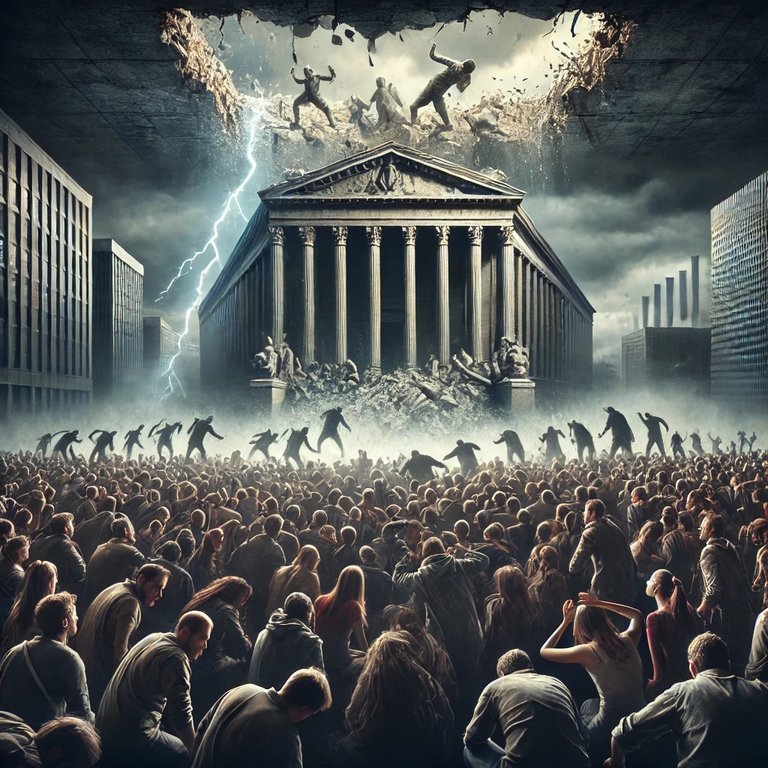Rising Costs, Falling Hopes: A Nation in Crisis Under Failed Leadership
Government, in its essence, should be the institution that serves the people, ensures their welfare, and provides stability and growth for the nation. However, in our country, it seems like the reverse is happening. Rather than working in the interest of its citizens, this administration has caused more harm than good, leaving many citizens frustrated and incapacitated.

It’s hard to understand how a government can be so unresponsive to the cries of its people. We are witnessing a continuous deterioration in the state of the economy, the financial well-being of citizens, and even their health. Since this administration came into power over a year ago, the cost of living has risen dramatically. It's like the rising blood pressure of someone with hypertension, and there's no relief in sight. The increase in prices of basic goods and services has become unbearable for the common man.
Should we accept this kind of treatment from our own elected leaders? Isn’t a government supposed to prioritize the well-being of its people? When a government acts in ways that ignore or worsen the struggles of its citizens, what else can we call it but dictatorship? True governance should not just be about enacting policies; it should also be about understanding and responding to the needs of the people.
In this administration’s first month, they made the controversial decision to remove the fuel subsidy. For years, subsidies had helped keep fuel prices somewhat manageable for the average citizen. The removal of this subsidy, coupled with the decision to float the naira, has caused a significant decline in the currency's value, making everything more expensive. The government's aim may have been to stabilize the economy, but the result has been catastrophic for everyday Nigerians, who are now paying much higher prices for fuel, food, and other necessities.
The hope we once had for a government that would take decisive steps to improve our living conditions is now fading. Instead of finding solutions, the government seems more focused on its own needs, taking measures that only worsen the situation for the people. For instance, while there has been talk of increasing the minimum wage, the reality is that this increase has been outpaced by the rising cost of living. Every day, the prices of goods continue to soar, making life more difficult, even for those earning the so-called higher wages.
In the president's manifesto, he spoke of broadening the tax range and implementing economic reforms that would stabilize the country. However, these measures have only served to lower the purchasing power of citizens and slow down the economy. As citizens, we are left wondering how we didn’t see this coming. Just a few years ago, this same administration was the first to criticize a former president for increasing the fuel price. Back then, the former president listened to the people and reversed the decision. But now, we are dealing with a government that seems to have turned a deaf ear to the cries of its citizens.
What’s even more alarming is the president’s admission that he knows we are going through a lot because of his policies. Yet, instead of taking action to relieve this burden, he claims there’s nothing he can do and continues to implement even more frustrating policies. Fuel prices continue to rise, and with them, the cost of goods and services. It's becoming impossible for the average Nigerian to escape the hardship.
People can no longer rely on their salaries, which are quickly consumed by transportation costs and the high price of basic goods. The minimum wage is now a joke, as it cannot even sustain a family for a month. Meanwhile, those who are supposed to call the president to account—his advisors, political allies, and top officials—are the very ones benefiting from these policies. They have no incentive to intervene because they are profiting from the suffering of the people.
What’s worse, when the people tried to protest, the president threatened to arrest them. This is not how a government that cares for its people should behave. Citizens have the right to express their dissatisfaction, and the government must listen and respond appropriately. Yet, the leadership seems more interested in maintaining power than in serving the people.
We cannot continue like this. It’s time for us, as citizens, to rise and fight for what is right. We deserve better from our government, and we must hold our leaders accountable. If we do not, this cycle of hardship and suffering will only continue. The future of our country depends on it.